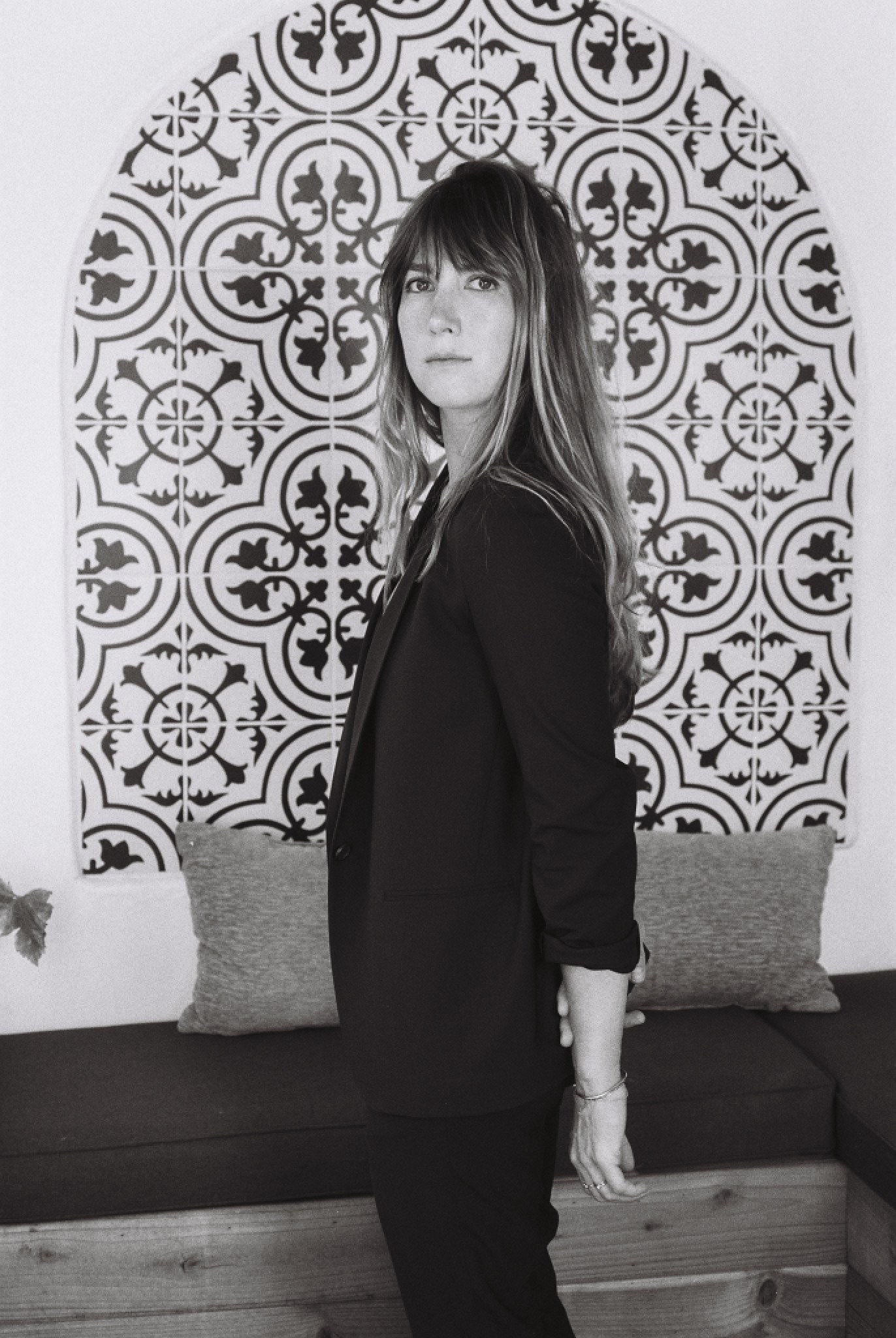
Elon Musk’s Worst Nightmare
Lives in
Santa Barbara
Journalist Zoe Schiffer
Gets the True Story of
How He Ruined Twitter
By Tyler Hayden | February 29, 2024
Zoë Schiffer may not have gotten inside Elon Musk’s head — I don’t think anyone has, including his biographer, or his wives — but for the better part of two years, Schiffer hovered figuratively over Musk’s shoulder as he made a spectacular mess of the social media company once known as Twitter.
Schiffer’s new book, Extremely Hardcore: Inside Elon Musk’s Twitter, follows the working lives of former Twitter employees as the world’s richest man and self-appointed arbiter of free speech snatches control of their platform and starts retooling it to fit his vision of humanity.
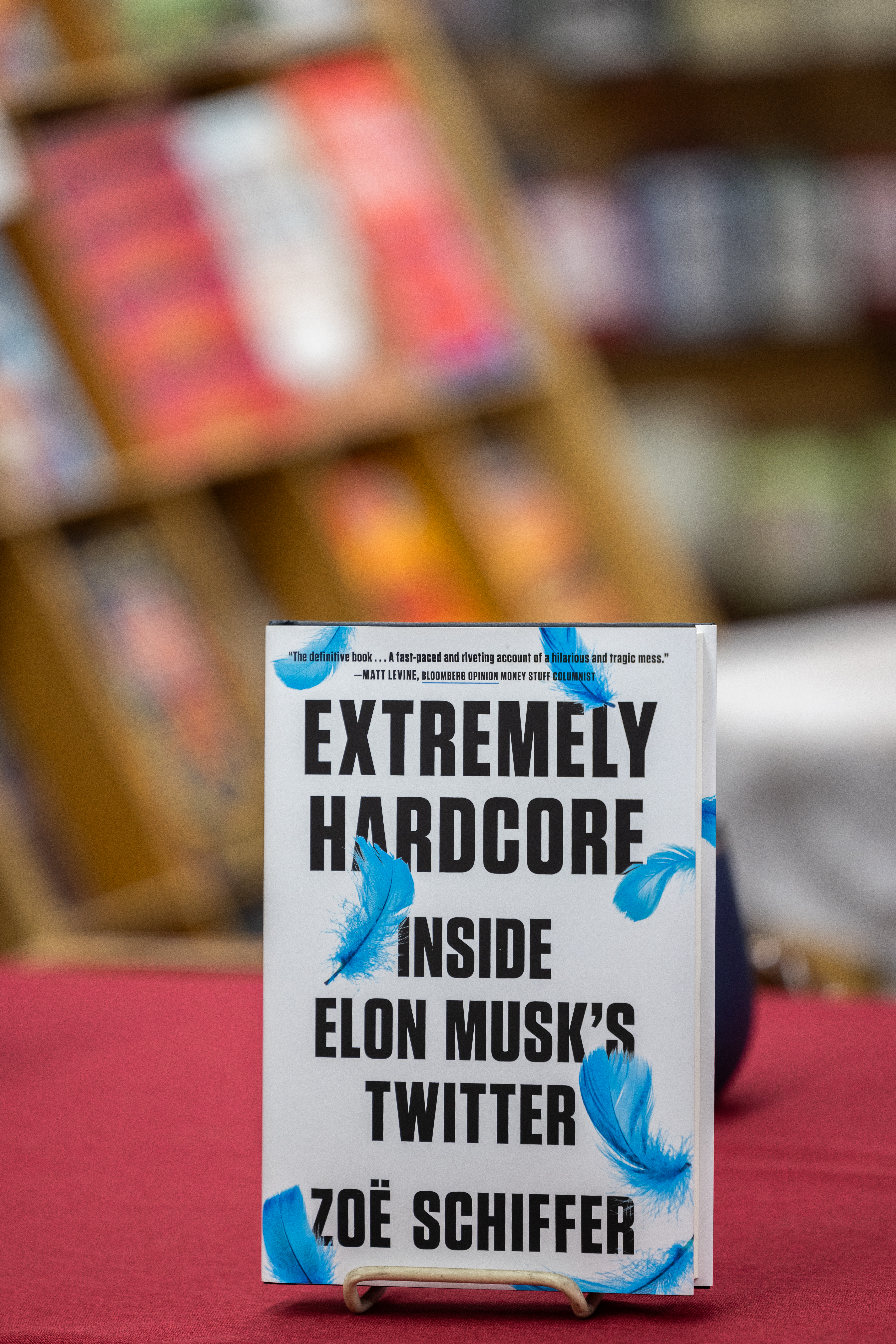
Accomplishing that meant gutting the company’s Trust and Safety division, which guarded against misinformation and hate speech; firing or laying off the engineers who actually kept the site running; sparking harassment campaigns against those who crossed him; and alienating the thing that made Twitter, Twitter: its users.
As a result, the platform is now a shell of what it once was. Since Musk purchased it in October 2022 for $44 billion, Twitter — now called X — has lost more than half of its advertising revenue and continues to face a massive debt load. Web traffic is down nearly as much, and its intrinsic value as a place to find and interact with news has all but been erased.
Named after the breakneck work ethos Musk demanded of his employees, Extremely Hardcore is based on hundreds of hours of interviews with more than 60 employees; thousands of pages of internal documents, Slack messages, and presentations; as well as court filings and congressional testimony. It starts with Musk fuming over President Biden’s tweets performing better than his, chronicles President Trump’s banishment and reinstatement to the platform after January 6, and brings readers all the way up to October 7, when Twitter became a hotbed of misinformation and propaganda about the Israel–Hamas war.
Schiffer, formerly a senior reporter at The Verge and now managing editor of Platformer News who’s written for New York Magazine and Vox, talked to us from her home in Santa Barbara. Below is an edited version of our conversation.
So, I rarely use Twitter anymore. Most of my new followers are porn bots, and the main feed is a mess — nothing I’m interested in. What about you? How is your Twitter use different these days compared to a year or two ago? It’s totally different in that it was one of my primary reporting tools, and now I’ve decided to not use it at all. I’ll still occasionally check it, because some people still post, but I haven’t posted anything myself since last November.
Oh, wow. Okay. Tell me about that decision. It couldn’t have been easy. You had amassed a pretty substantial following — more than 100,000 people, last time I checked. Yeah, it was a really big shift. I used to break news first on Twitter, and I’d built a pretty sizable account. But I reached a breaking point, and there were two main reasons.
One was when Elon Musk went after Yoel Roth, an openly gay man who was head of Twitter’s Trust and Safety division. Musk insinuated that he was a pedophile. And Yoel is someone I’ve spoken to a lot. Those allegations had zero basis in reality, but it forced him to flee his home, ultimately sell his home, and go into hiding with his husband.
At that point, I felt like Musk was engaging in targeted harassment. And it felt really weird to participate in the platform in a way that was continuing to legitimize and elevate what Elon Musk was doing.
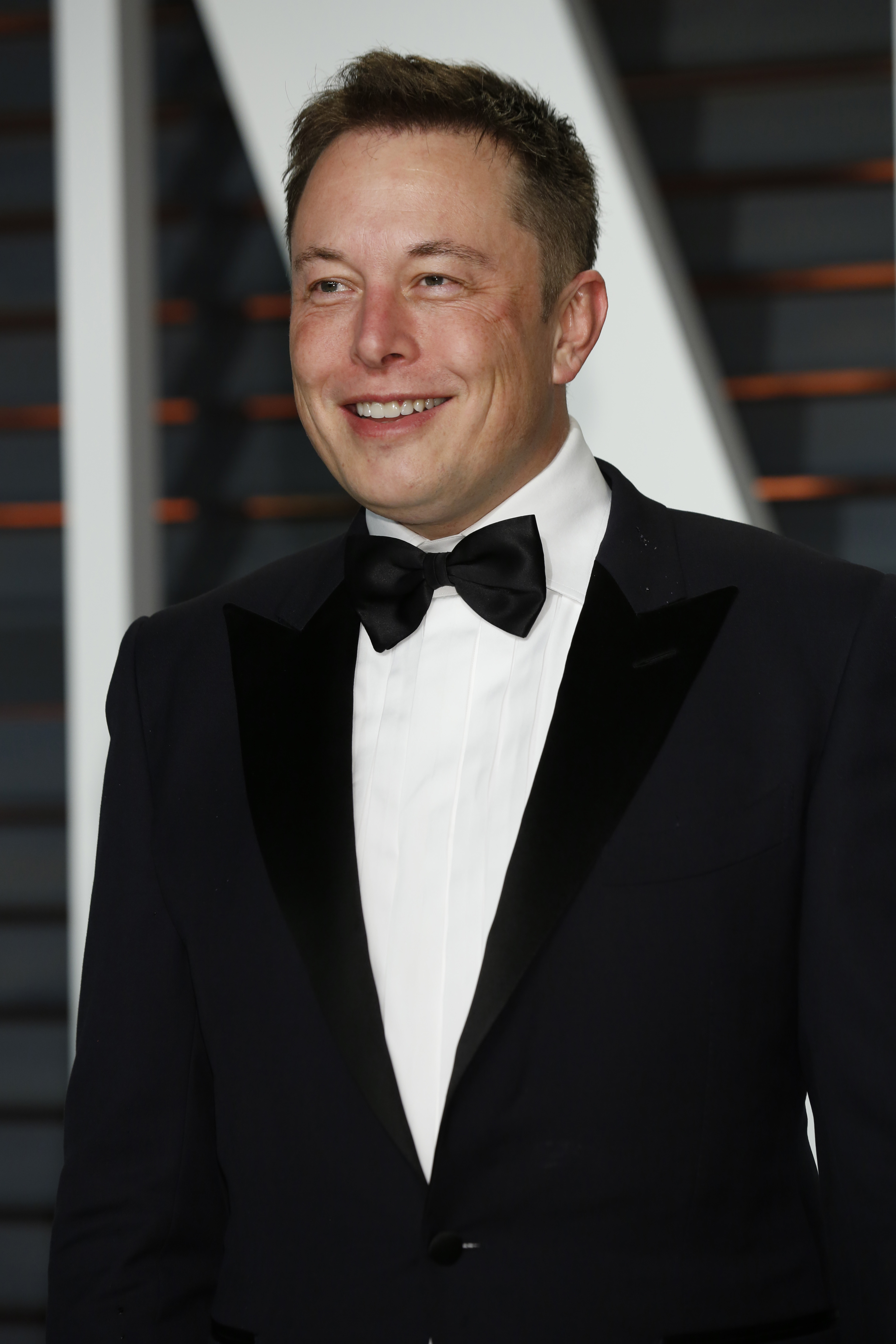
The other thing was the more overt war on the mainstream press he’s been waging — the elevation of accounts that spread misinformation, slandering journalists. I felt like, if I continue to break news here, I’m continuing to pretend that this platform is a place that respects journalism, and it’s not. So, I’ve decided to totally leave it. But it was a painful decision.
One of the things that struck me about Musk is that he seems to go out of his way to be cruel. I know a lot of tech CEOs aren’t angels, but would you say his behavior is typical of the industry? I will say, for me, equating what Elon Musk is doing with what other tech CEOs are doing is a complete fallacy. The way he acts is so outside the scope of what’s normal. It’s intentionally causing harm versus causing harm because of negligence. And those are two different things.
I’ll admit, I was a little nervous to read your book because I didn’t want to spend 300 pages with the guy. But the book really isn’t about him — it’s about the people who poured their hearts and souls into making Twitter what it was, only to watch someone come and stomp all over it. Why did you decide to tell the story from their perspectives? A few reasons. The first one being that I am not a natural tech reporter. It’s the area that I’ve fallen into because I went to undergraduate and graduate school in the Bay Area, and it was just what I was immersed in. I think if I’d been somewhere else, I would’ve reported on something different because I’m not particularly techy. I’m not really interested in the great new product. But I am really interested in stories of people.
And I did care about Twitter in a way that I didn’t care about other tech products. I was in school during the revolution in Iran when Twitter had played a big part in helping dissidents organize protests. It had played a big role in Occupy Wall Street. And so, I’d seen its potential for aiding in democratic movements around the globe. It had cultural importance in that way.
I worked for a small independent journalism company, and we were getting literally thousands of new subscribers every single month by writing about Elon Musk. But it was getting to a point where I was like, “There’s so much else going on in the world. This guy gets so much attention, and now I’m a part of that. I want to change directions.”
So when I started working on the book, I had to figure out what I still cared about. I decided I didn’t care about Elon. But I did really care about my sources. Twitter employees were idealistic — they really believed in the potential for their platform to be used for good. And they had spent years fighting for the best vision of what Twitter could be. Even when Elon Musk came on board, some of them really didn’t like him as a person, but they all were willing to stay because they cared about each other, and they cared about the users.

Regardless of their mindset going in, they all reached a point of intense disillusionment and apathy because he had so little regard even for the people who were really loyal to him. That was the story I was interested in.
Musk loves to retaliate. How did you find employees who were willing to speak with you? The less loyalty he inspired from employees, the easier it was to talk to people. It was just a matter of finding people who still had their jobs. I was able to start breaking news in August, and then the floodgates opened.
The first big story I got, I’d received a bunch of documents from someone who had become really frustrated with how things were going at the company. This was before Elon bought it, but he’d made the offer and there were these various lawsuits going on to figure out if he was going to buy it, if he wasn’t, if he was….
In the documents, I came upon this presentation that said Twitter had really considered and made moves toward launching an OnlyFans competitor. So, basically, capitalizing on adult content and charging people for it. They’d gotten pretty far in the process.
But before launch, they decided to scrap it completely because they’d realized that the platform still had a big issue with child sexual exploitation material. And it couldn’t guarantee that it wouldn’t be charging people for that, because it was essentially overrun with the worst kinds of images on the internet.
How Twitter’s unraveling played out — what did it say about this moment in time with respect to tech and labor? I think that’s one of the biggest impacts of the whole story. The takeover was happening during the pandemic when workers in the tech industry — in other industries, too — started to gain a fair amount of power. They were asking for more concessions, perks, benefits, work-life balance. And they were actually getting it. It felt like the balance of power was shifting. There was more unionization among younger people in particular.
Elon Musk’s acquisition of Twitter, I think, really reset the scales. The economy was bad at that point, and so there was this recalibration of how companies interacted with workers — what they gave them and allowed them to do.
Musk essentially equated worker power with what he calls the “woke mind virus.” Anyone who wanted to debate policies and have more of an open dialogue was part of this liberal, lazy workforce that wasn’t going to be part of his organization.
We really saw that take root across Silicon Valley. Mark Zuckerberg even credited Elon Musk with giving him license to fire middle managers. He’d set the bar so low that anything they did after that seemed pretty reasonable. And he’d also given them almost a religion to speak to when they were doing it, where it was, “The age of excess is over and the age of austerity is in.”



[Click to enlarge] Author Zoë Schiffer discusses ‘Extremely Hardcore’ at Chaucer’s Books on Tuesday, February 27, 2024. | Credit: Ingrid Bostrom
What do you want readers to take away from the book? And what lessons can be learned at an industry level? I hope what people glean from this story on a macro level is that the internet as we know it, the open web as we know it, is fragile. And these institutions that we think of as infallible and part of our everyday lives are vulnerable to someone with enough money coming in, buying them, and reshaping them in their own image. And for someone like Elon Musk, there are very few checks on his power.
It made me realize the ability to speak freely online, to have a platform, should never be taken for granted, because it can be taken away at any moment. And it was for a lot of people.
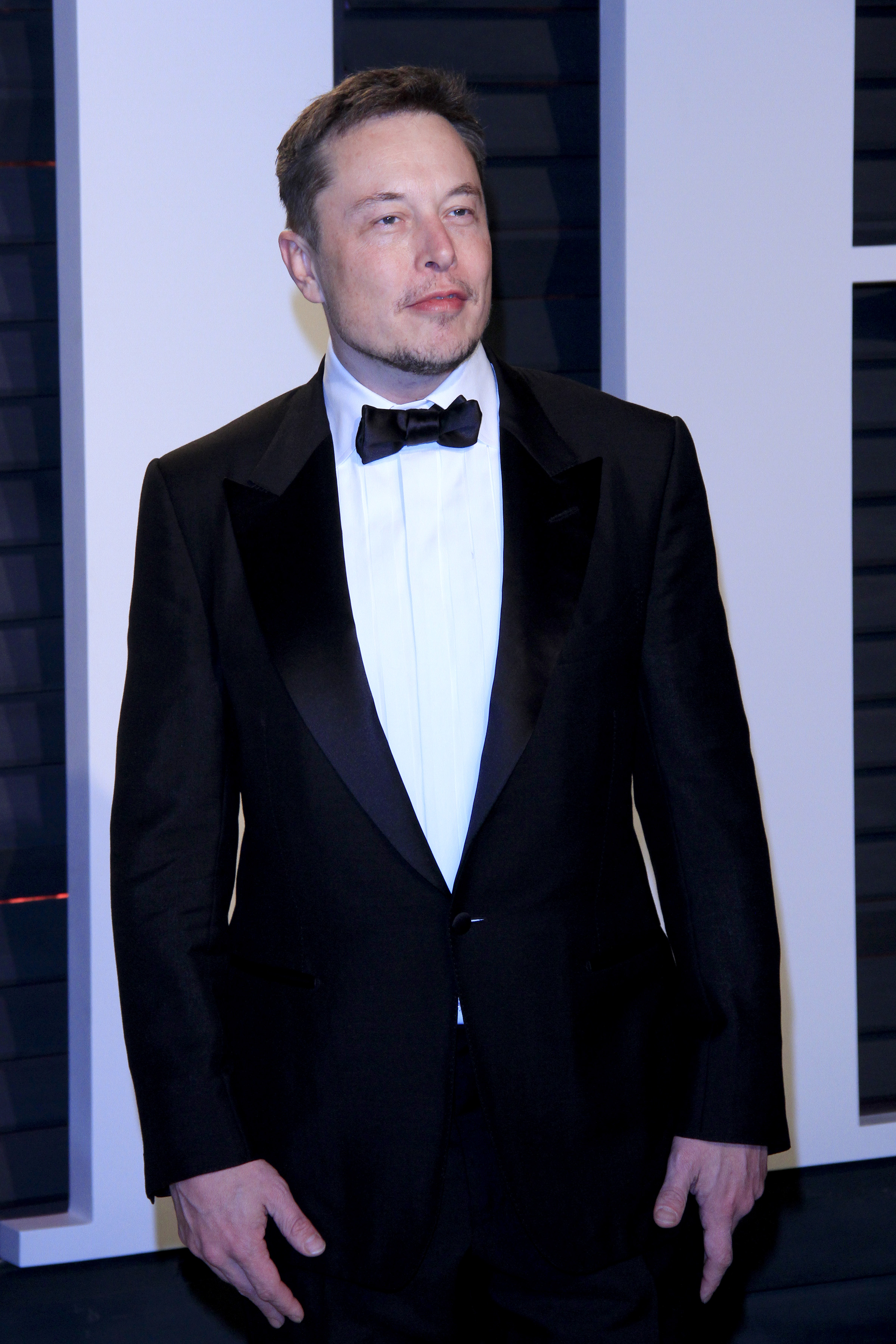
Institutionally, it’s tough, because the way capitalism works, boards of directors have a fiduciary duty to do what’s best for their shareholders. And in this case, Twitter was not known for having a strong board. But even if it had, it’s hard to know what they could have done when Elon Musk was offering $54.20 a share at a time when the economy was sinking.
I think that increased regulatory scrutiny would be great. And we know that the SEC [Securities and Exchange Commission] is looking at his acquisition of Twitter to see if he violated securities laws. But even then, I come back to the fact that the biggest fine Elon Musk received from the SEC was, what, $20 million? And he’s worth over $200 billion. It was a drop in the bucket.
It’s disheartening to think about, on one hand, but I have to believe that it matters that the SEC is taking him to court. And it matters that my source, Yao Yue, who was Twitter’s principal software engineer, is suing him through the NLRB [National Labor Relations Board] for firing her illegally.
He probably doesn’t want to pay another $20 million, but I don’t think he’s motivated by money. I think he’s motivated by attention and power.
One thing that keeps bothering me is, how can the richest man in the world who builds electric cars and puts rockets into space screw something up so badly? Why didn’t his previous successes translate to Twitter? I think one of Elon Musk’s shortcomings — and his brother, Kimbal, will say this — is that he lacks empathy. That doesn’t really matter if you’re building rockets or electric vehicles. But when you’re running a social platform, you need empathy for users. You need to understand what they feel and what they want. And you definitely need it for advertisers. His animosity toward the whole advertising industry has shot him in the foot again and again.
Because no matter how much you believe in free speech, the combination of regulatory pressure, what users actually want, and certainly what app stores and advertisers want is not going to allow you to have a complete free-for-all.
Tesla engineers have described him as a “quality control guy.” He would drive his Tesla to work and have all this feedback about all the little tweaks he wanted made to his car. And they would do it, but it wouldn’t impact other Tesla drivers and their cars.
He treats Twitter that same way. He runs the entire company off of his own experience, which is incredibly unique because he’s the most followed person on the platform. And his preferences aren’t everyone else’s preferences. But when you tweak the algorithm again, and again, and again so Elon Musk will be happy, it negatively impacts everyone else’s experiences because they get flooded with content that is totally irrelevant to them.
I hope what people glean from this story on a macro level is that the internet as we know it,
the open web as we know it, is fragile.
— Zoë Schiffer
Being so steeped in his toxicity for so long — did that start to play tricks on your mental health at all? To be fully honest with you, it’s made me want to switch off of reporting on the tech industry. I got a lot of harassment, and it pushed me to my breaking point. I had never really considered what it meant to be a female tech reporter before. I’d always felt like it had benefited me or made me stand out.
I co-bylined all of my Twitter stories with my male colleague. It was almost comical — we would publish something, his phone would stay silent, and mine would blow up with a barrage of just awful videos and images.
There was a period where I was nursing my daughter at night. I would get up at 4 in the morning, and Elon would often email employees at 4 in the morning. So, I would be nursing and trying to have this moment of connection with my daughter and then also dealing with an onslaught of hate on my phone. That started to feel really awful.
I can only imagine. Tech bros, in my opinion, are the worst kind of bro. Yeah, even when I would reach out to Elon’s close associates for comment, they would do things that just showed how little respect they had for me, like emailing my boss, talking down to me, that kind of stuff.
But that’s fine; that’s their prerogative. And I know that so many people have it a lot worse. So, I try to keep perspective, knowing my sources are dealing with issues that are about their livelihoods and their safety. So, I can take a little hate and a little heat.

The morning of June 16, Parag Agrawal kicked off the all-hands meeting that he’d been trying to schedule since April. Musk was running ten minutes late. Agrawal stalled for time as tweeps crowded into the Commons, an enormous cafeteria on the ninth floor of the San Francisco office. Finally, Musk logged onto the meeting from his phone. He was sitting in his living room in Austin, Texas. His white button-up was slightly undone, his hair more than slightly askew. A man in a black shirt (a friend? butler?) could be seen walking around in the background.
Agrawal thanked Musk for joining. Employees had submitted questions in advance and were eager to get started. The status of the deal was off-limits. Agrawal needed to assume that the acquisition was moving forward regardless of Musk’s recent antics. But everything else — Musk’s political views, remote work, compensation — was fair game.
Leslie Berland, Twitter’s chief marketing officer, eased Musk into the Q&A with a softball. “Why do you love Twitter?” she asked.
“Well, let’s see. I find, like, I learn a lot from what I read on Twitter, and what I see in the pictures, videos, text, and memes that people create,” Musk said. “I also find it’s a great way to get a message out over the phone, when I want to say something and make an announcement, I think Twitter’s the best way to do that.”
He continued to ramble, joking that “some people use their hair to express themselves, I use Twitter.”
Employees were growing concerned. “I actually turned to a stranger in the Commons and said, ‘What is happening right now?’ ” one employee recalls. Wasn’t this guy supposed to be a genius?
Randall Lin thought people were overreacting. “With Elon you kind of know what you’re going to get,” he says.
Berland asked Musk how Twitter employees could earn his trust and how he planned to earn theirs in return. Musk demurred. “It’s, like, if somebody is getting useful things done, then that’s great,” he said vaguely. “But if they’re not getting useful things done, then I’m, like, ‘OK, why are they at the company?’ ” Agrawal might have hoped this meeting would comfort Twitter workers, but Musk seemed to have no interest in doing that.
Berland’s last question was whether Musk planned to take the title of CEO. Musk responded that he didn’t get hung up on titles. His role at Tesla was “techno king” as well as CEO, and his chief financial officer was called the “master of coin” in addition to being the CFO.
Then he laid out what he called his unifying philosophy. As far as employees could tell, it had nothing to do with Twitter.
“We should take the set of actions most likely to extend the scope, scale, and life span of consciousness as we know it,” he said. “What sort of actions improve things at a civilizational level and improve the probable life span of civilization? Civilization will come to an end at some point, but let’s try to make it last as long as possible. And it would be great to understand more about the nature of the universe. Why we’re here, meaning of life, where are things going, where we come from? Can we travel to other star systems and see if there are alien civilizations? There might be a whole bunch of long-dead, one-planet civilizations out there that existed five hundred million years ago. Think about the span of human civilization from the advent of the first writing, it’s only about five thousand years.”
Many employees were stunned. “This is someone who is either quite stupid or hasn’t given this much thought,” a former engineer said. “But either way he is not taking this seriously, and he holds the company and the product and us, the employees, in contempt.”
Another engineer manager left the meeting and told his team that if they ever ran a meeting like that, they’d be fired.
“He did not land the plane,” a former executive noted dryly.
Extremely Hardcore: Inside Elon Musk’s Twitter (Penguin Random House) is available at Chaucer’s Books in Santa Barbara and Tecolote Bookshop in Montecito.
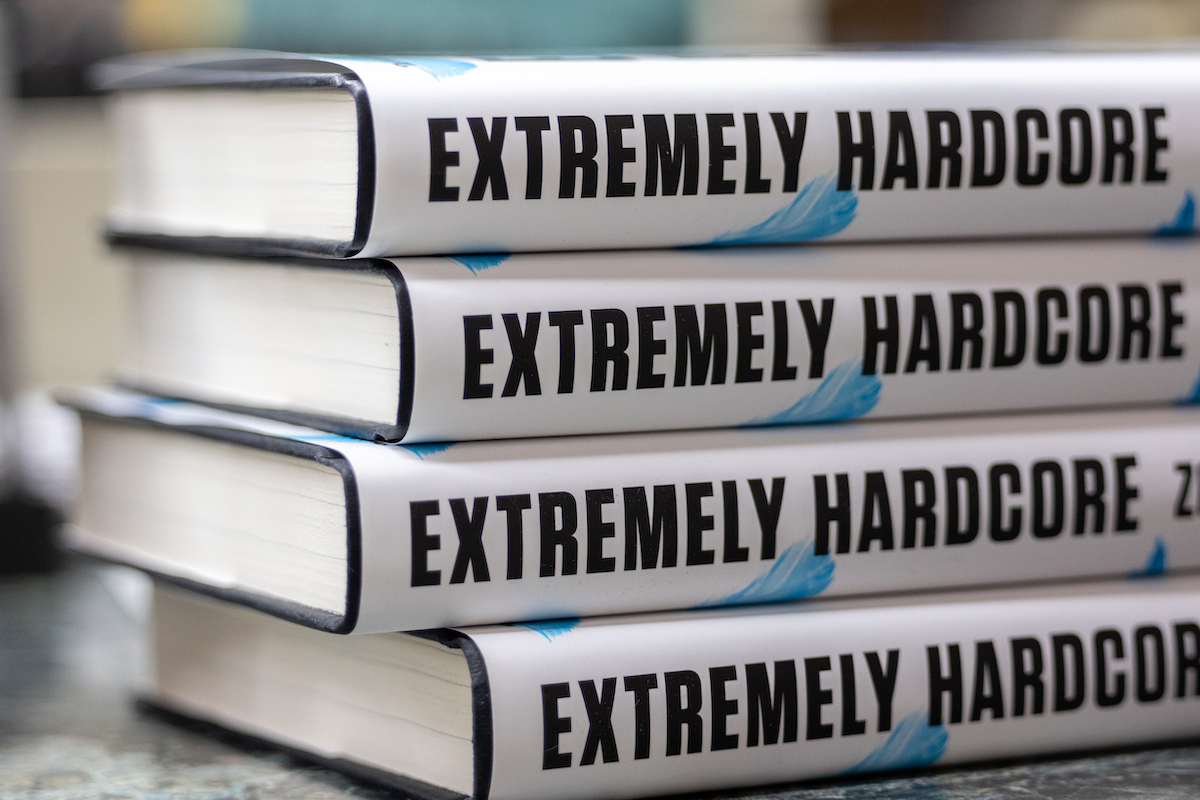


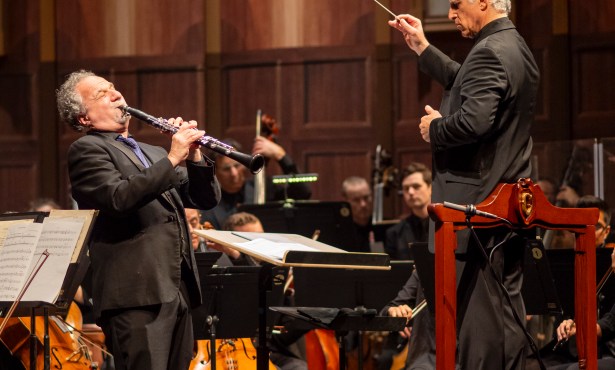

You must be logged in to post a comment.